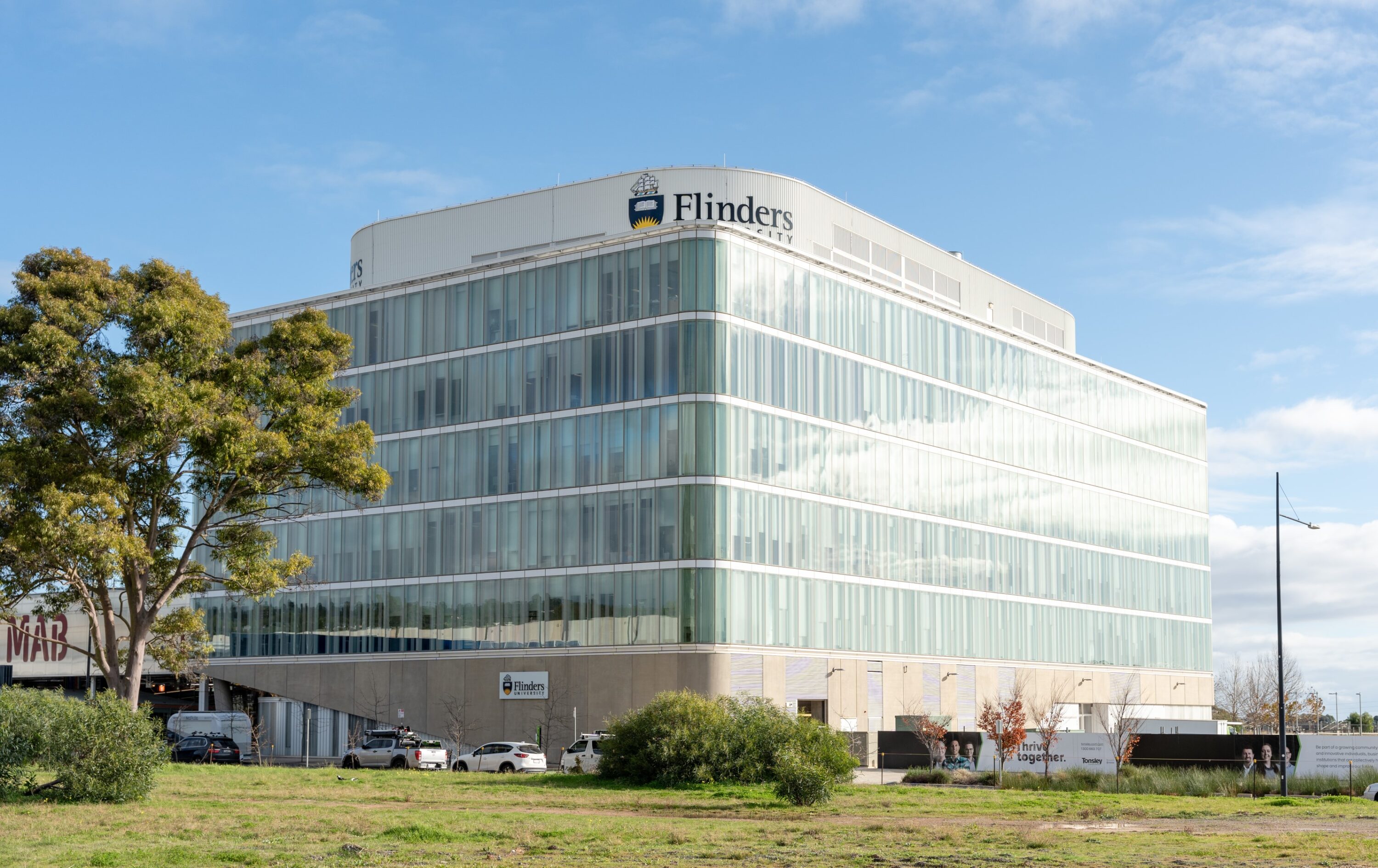Not so fast: Tonsley students’ winning formula in great solar race

At first glance, the sharp angles and futuristic-design of this fourth-generation electric vehicle designed and engineered by Flinders University students conveys a sense of speed.
Even the team’s name – FAST – suggests that their two-seater aluminium and fibreglass roadster housed at Tonsley Innovation District has the horsepower to leave competitors in its wake.
Except, FAST doesn’t mean fast. Rather, its short for the Flinders Automotive Solar Team, and their aim: to have one of the slowest cars in the 2023 Bridgestone World Solar Car Challenge, which pits university teams from across the globe in a 3000km race from Darwin to Adelaide.
The car, Investigator IV, will compete in the October challenge’s Cruiser Class, an endurance race, which uses a complex judging system scoring cars on aspects such as practicality, design, on time performance and, importantly, energy-efficiency.
“The category is an energy challenge, so our team is competing very much in the tortoise race; resistance and energy losses increase with speed, so you want to win at the slowest possible race speed, which makes it really interesting,” explains Flinders University electrification hub supervisor Robert Chadwick.
The car will be powered by 215kg of rechargeable batteries, accounting for just over a quarter of the car’s total 790kg bodyweight.
Mr Chadwick said the modelling conducted indicates that the vehicle travelling at an optimum 76km/h will use about 30kWh of electricity a day – about the same daily energy use of an average four-bedroom house. A solar array on the hood and bonnet will generate just under a third of its daily needs on the 3000km journey.

FAST team members Joel Paxton, Jamie Jackson, Bryn Jarvis and Luis Briceno with Investigator IV
“Our energy net loss will be about 22kWh per day,” Mr Chadwick said. “We’re allowed to charge it on the second night and the fourth night of the journey, but only between sundown and 11pm that night.
“We should be able to get to Adelaide…. just.”
The Flinders Solar Car program has been running since 2016 and provides a global experience for students studying engineering disciplines such as mechanical, electrical, materials and civil as well as computer and data science and mathematics.
This year’s FAST team – the first to compete since 2019 due to Covid interruption – comprises 15 students and alumni who work with industry and leading academics in their fields.
Their workshop is Tonsley’s Main Assembly Building where each Tuesday night they put the vehicle through its paces, run the ruler over calculations and modelling, and just socialise in a supportive and friendly environment.
This year’s challenge is particularly special, marking the 30th year of engineering at Flinders University. The milestone will be celebrated in livery on Investigator IV as it cruises from the Top End to Victoria Square, over six days.
The car will also carry the names of key industry and Tonsley precinct partners whose support, practical and financial, is helping to power the innovation.
Connecting up the internal wiring has been made easier with the support of Tonsley’s global engineering company and award-winning leader of solutions, AZZO Automation.
“They’re an important supplier for us. They’ve built the electrical loom for us,” Mr Chadwick says. “And now that’s built it’s up to the students to make it work.”
Lonsdale-based advanced electronics manufacturer, REDARC, is the team’s main sponsor, continuing a long partnership supporting students and research at Flinders.
FAST team vice president and Flinders electrical engineering student Jamie Jackson, 21, has been part of the team since March 2020 helping to lead design meetings, allocating tasks and assisting faculty leaders in creating workshops for school students.
He said a benefit of FAST is being able to put into practice classroom theory.
“But there’s also the team leader aspect and learning how to manage a group of people to get stuff done,” he said. “There are also real-world consequences if you don’t do something correctly or if you are lacklustre in your safety, for example.
“I think I’ve touched pretty much most of the system or had an input or designed something for it.”
Being at Tonsley, he said, has made the experience even more fulfilling.
“The fact that everything is so modern, it’s all so new, and the facilities are just brilliant to work in,” Mr Jackson said.
“Also, that it’s got the automotive history, having been the Mitsubishi factory, and that we’re still building cars here, it’s fun to think about.
“It’s a special feeling, it’s hard
to describe but when this car is finished, we’ll have continued the automotive legacy.”
For now, Mr Jackson and his team are excited about getting the car on the road.
“Three years is a long time to not be able to drive a car; it’s been fun learning everything and we know this car inside and out, but just driving it is what we’re all looking forward to,” he said.
The 2023 Bridgestone World Solar Challenge runs from 22 to 29 October.
For more information about the Flinders Automotive Solar Team visit
Together at Tonsley
Related News
Stay up to date with the latest news, developments events and activities at Tonsley Innovation District


